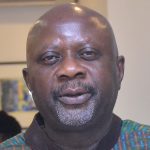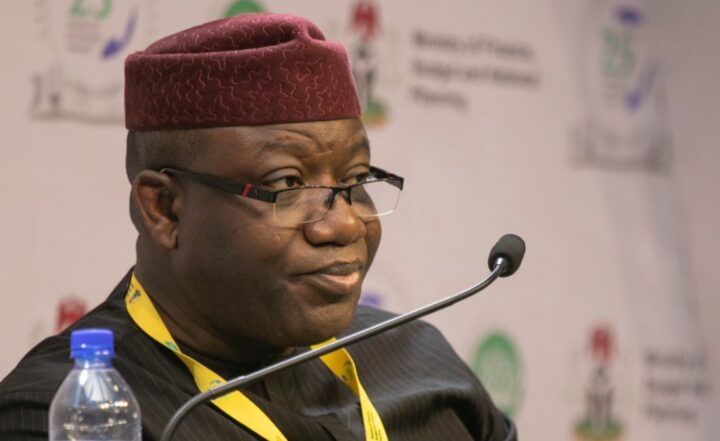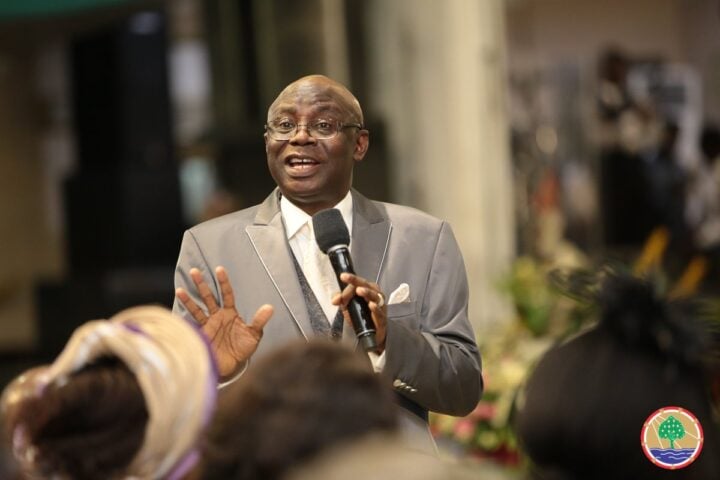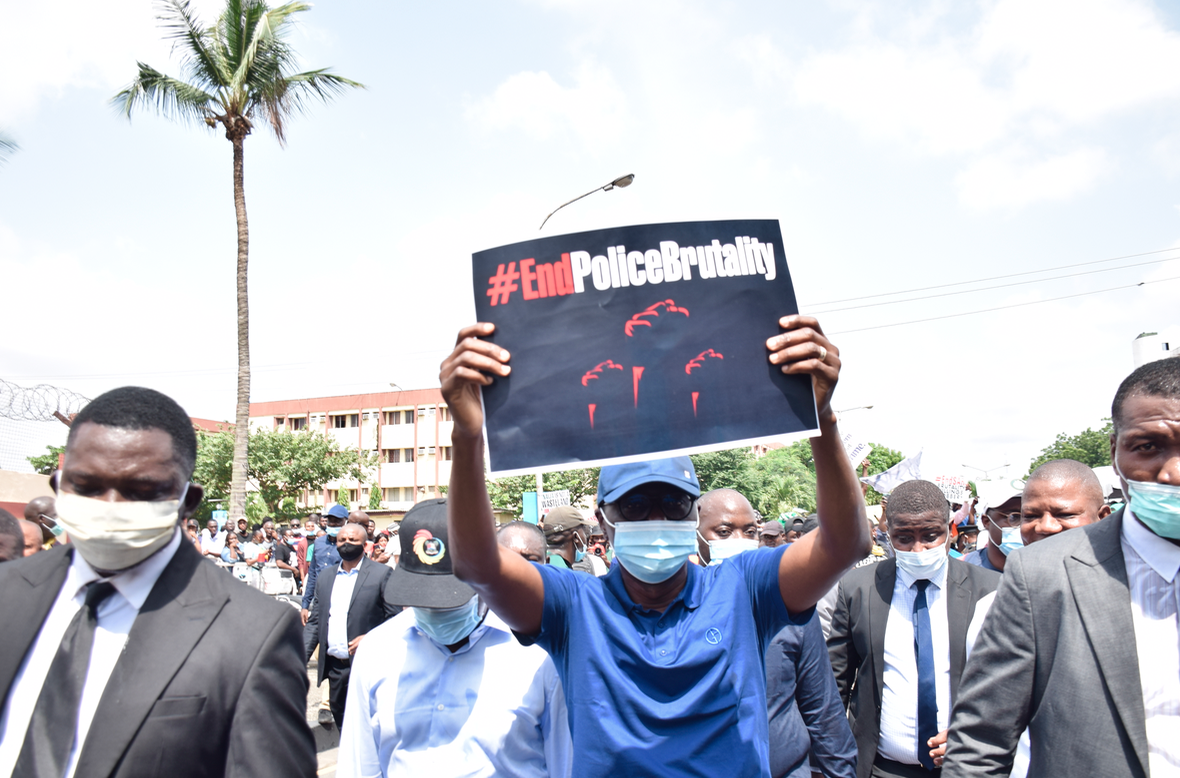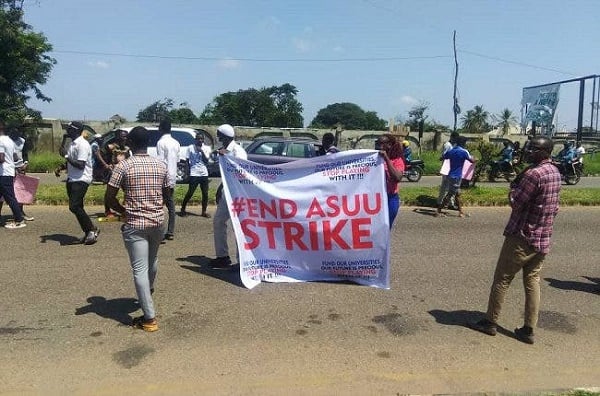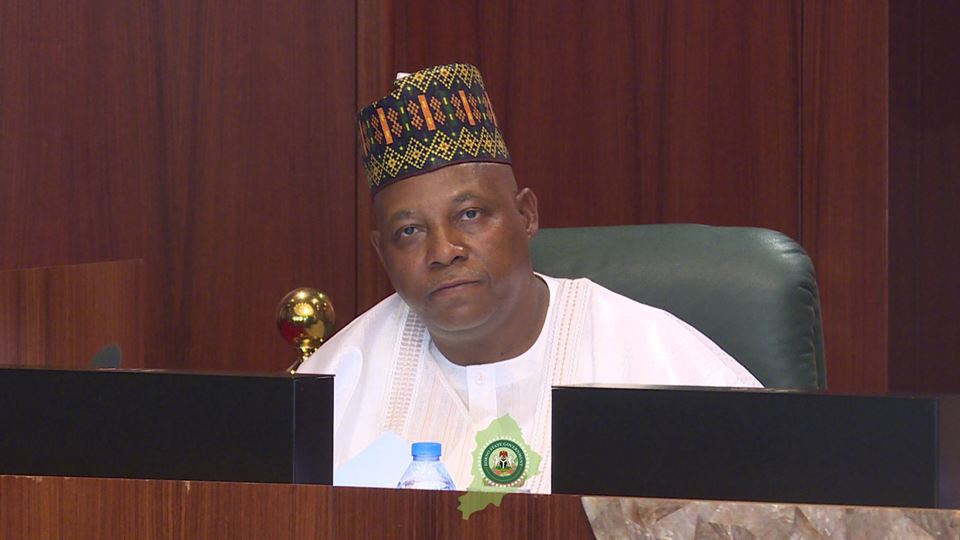Kayode Fayemi
Perhaps one of the perplexing paradoxes about the Nigerian condition is the inordinate, if not pathological fixation of the country’s political elites on politics as the only process that matters in interrogating the “National Question.” It increasingly looks like it is the only process they’re adept at in finding enduring solutions to what bedevils us as a people. Politics, in our clime, is the tail that wags the dog. It is the end-all and be-all pedestal on which all the other indices of development must find their sustenance. And since it (politics) is the integer from which all other developmental indices are supposed to find their expressions, it then becomes the super agenda that sets every other agendas in the polity to which everyone must key into even when we feign our dislike for the business of politics and the politics of business.
Thus, the fact that 2023, which has two full years before it, is considered another watershed in the country’s seemingly hopeless journey to finding a true path to her manifest destiny (even when history has taught us that 2023, just like other landmark years, will come and go most likely without us finding any water or shed). It is a stark reminder of the unseriousness of our political elites as well as a manifestation of an unproductive, lackadaisical nature of a people with mutually annihilating socio-economic and political interests. Aside its constitutional imperative in which there is a real possibility for societal transformation, 2023 will also double as the year of the long knife. This is because 2023 is bound to come and go with its own political casualties as it would see to it that the careers of some merchants of politics would come to grief while that of others would be permanently obliterated as they would have either dribbled themselves into the slaughter slab of the butcher or naively goaded into it. And that stage is surreptitiously being set.
The duel in the Southwest geopolitical region among its major patrons promises to be very deathly both in its intensity and ferocity, no thanks to what not a few people both within the region and, to a large extent, without, believe to be the region’s propensity—-most probably rooted in the metaphysical—-to almost always snatch defeat from the jaws of victory because of what seems to be their innate disdain for cohesion when politics is being played, which is a necessary condition to arriving at an ennobling collective political destiny on the one hand, and the fact that the region stands a better chance, more than the other two southern regions, to produce the country’s next president on the other.
Perhaps because of the aforesaid, the race to grab the ‘longest knife’ with which to intimidate, ward off, if not slaughter other major contenders in the Southwest region even when the referee is yet to announce the rules of the game, by a motley crowd of acolytes of one of the region’s major political tendencies has started in earnest. While it is within the right of any potential contender in the Southwest geopolitical region to determine when to join the 2023 presidential contest, what should, and must not be conceded to anyone is the right to engage in political subterfuge by weaving another insidious, callous and utterly reprehensible anti-Yoruba narrative around Dr. John Kayode Fayemi, the governor of Ekiti State as it is currently being done just because of some misguided perception that he may be interested in joining the 2023 presidential slugfest. This is patently crass, juvenile and unacceptable and must be resisted.
Advertisement
It matters not that the governor said, on several occasions, that his work is already cut out for him and that the unenviable task of rebuilding Ekiti State from the ruins that happened on his predecessor’s watch is his main priority. It makes no difference that Governor Fayemi has not only been consistent in his dismissal of any presidential ambition at every turn, and that he has not given any thought to 2023 because the front, back and centre of his political and governance activities is the “unfinished business” in Ekiti State. And it certainly did not make any impression on them that Fayemi suspended the Chairman of Ikere Local Government Council (a high voter population Council he lost in the last governorship election) not because the chairman visited some monarchs in his domain to solicit support for Fayemi’s non-existent 2023 presidential bid, but because of his proclamation of his readiness to support his principal should he decide to throw his cap into the 2023 ring with some inconsequential posters on the social media when the governor could simply have ignored him and found solace in the Doctrine of Plausible Deniability. Yet, the negative narrative on Fayemi must continue without let or hindrance.
While the trajectory of the Fayemi narrative as a desperate, anti-Yoruba fifth columnist working at cross purposes with the Yoruba collective political interest did not start today, it is meet to point out the fact that the genesis of this insidious narrative dated probably to as far back as 2014 when he lost his bid for re-election. The sing-song in the aftermath of that 2014 governorship election—-we should recall—-was that Fayemi did not qualify for a ministerial appointment not only because it was his fault that the progressive party lost the state, but also his refusal to challenge the outcome of the election in the courts which was never pleasing to some tendencies in the progressive fold at the time until Captain Sagir Koli shocked the world with his mind-boggling confession about the Ekiti governorship election. The rest, as they say, is now history.
A discerning mind would have recognized at that time that Fayemi represents an emerging brand of progressivism in the region who, while willing and eager to subsume his personal political inclination within an overarching group/societal political interest and in deference to other powers before him within the same organizational structure, he’s acutely aware that he must also hold steadfast to those ideational imperatives which gives him his political identity, which cannot be compromised no matter who seems displeased. And this is where the rubber must have met the road.
Advertisement
Perhaps because of the inability, if not deliberate unwillingness to accept this new political reality in the region, Fayemi was marked. He, therefore, must be demarketed and neutralized by any means necessary. Fayemi’s negative narrative—-we should also recall—-intensified during the 2017 Ondo State governorship primaries that threw up now Governor Rotimi Akeredolu (SAN) to fly the flag of the All Progressives Congress (APC) party. We should remind ourselves that Fayemi was then, without any basis, dubbed the region’s modern day Ladoke Akintola when all he did was to have worked assiduously to ensure victory for the candidate of his party, whereas, two mutually-reinforcing centres of power in the region activated a moribund political party and bankrolled its candidate to run against the candidate of their own party with reckless impunity. It doesn’t get any more despicable than that.
There is even an indication that Fayemi’s “Arewa House” speech, which was delivered in the bastion of Northern intelligentsia and power is proving to be unsettling to these demarketers as they must fuel the fire of this on-going narrative. It is therefore a matter of time before another attempts would be made to graft the Akintola sub-narrative into the overall Fayemi narrative. The Ekiti State governor is already being put to task not because of his audacity to have articulated several critical issues that has been the fundamental objective and directive principles of the Yoruba people since the time of Awolowo, if the Nigerian nation must survive, in the inner recess of a largely conservative northern power bloc, yet, he came out unscathed. The speech was well received because of how it was delivered. But what’s being said in the emerging narrative without being said is that Fayemi did not go far enough to proclaim that Nigeria must first die before a better Yoruba can be born. It beggars belief, although one should hasten to mention that it is part of the grand narrative, for anyone to suggest that Fayemi has not stood firmly in defense of Yoruba whenever the occasion demand.
Pray, whose cause did he champion during the NADECO days when Fayemi became the second most wanted Yoruba after Prof. Wole Soyinka by Abacha goons because he was the face of Radio Kudirat when some political operatives in the region were busy cashing in on the military misadventure? Whose yearning was being addressed when Fayemi envisioned the Western Nigeria Security Network better known as “Amotekun?” And where were these demarketers when the survival of the security network was seriously threatened and Fayemi led his colleagues in the Southwest region to Abuja where they agreed that Amotekun’s rough edges could be smoothened but not to be scrapped (as the Amotekun antagonists, including some tendencies in the region, would have preferred) because that would be unacceptable to them? This is because the security of Yoruba is paramount in his mind when these demarketers refused to take a definitive stance on the security of their people because of some political calculation. But for Fayemi, political calculation be damned when it comes to the security of the Southwest region. He stood, and still stands, by the collective yearning of his people.
The relentless noise in the Southwest region around a potential contender even when we must admit that he’s yet to indicate publicly his bid for the 2023 presidential race is, perhaps, another insidious attempt by these tendencies to label other politicians from the region who might want to join the fray at a later date as ingrates, if not traitors. While we must remind ourselves that the political component of the “National Question” may not be adequately interrogated without the political class coming to terms with Fayemi, whose engagement in the body politic within a relatively short span may have inadvertently thrown up his own unique “question” when he would rather prefer the contrary, Fayemi will most likely remain politically beleaguered not only because of the political elites that puts high premium on mercantilism in exercising political power rather than ideology—-which has become his trademark—-but for his uncompromising adherence to those set of values, ideational imperatives and his readiness to go against the grain of group think. These are what gives him his political identity. The political capital—-which is quite unprecedented—–that Fayemi has garnered across the nooks and crannies of Nigeria can only strengthen Yoruba and should not be seen as a liability. This is what one hopes the demarketers would have the presence of mind to come to grips with.
Odere lives in Iropora-Ekiti. He can be reached at [email protected].
Advertisement
Views expressed by contributors are strictly personal and not of TheCable.
Add a comment
